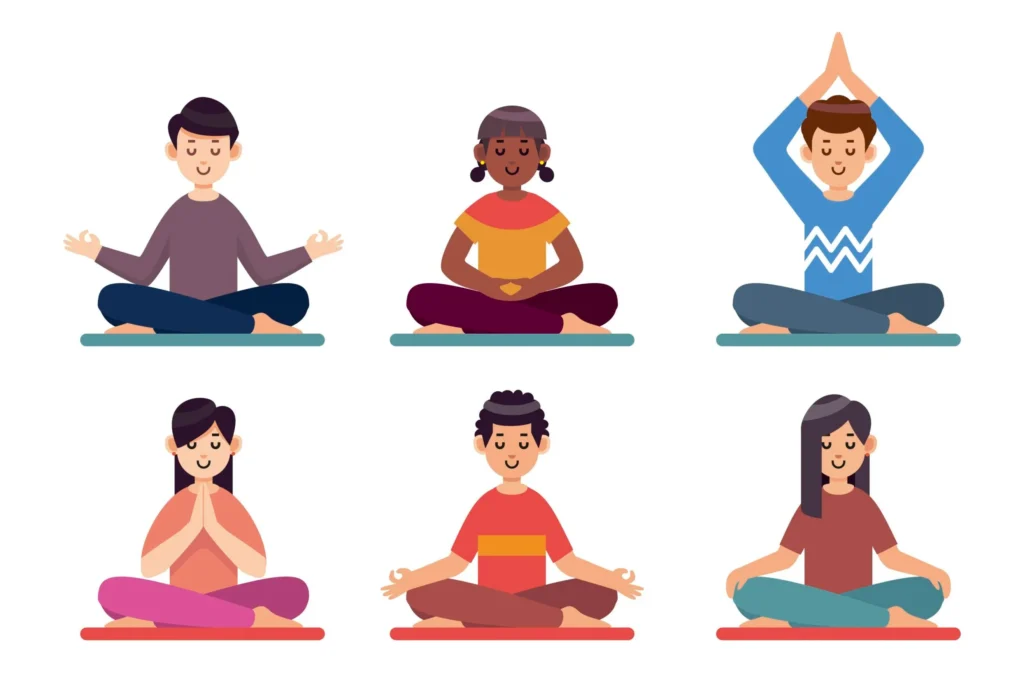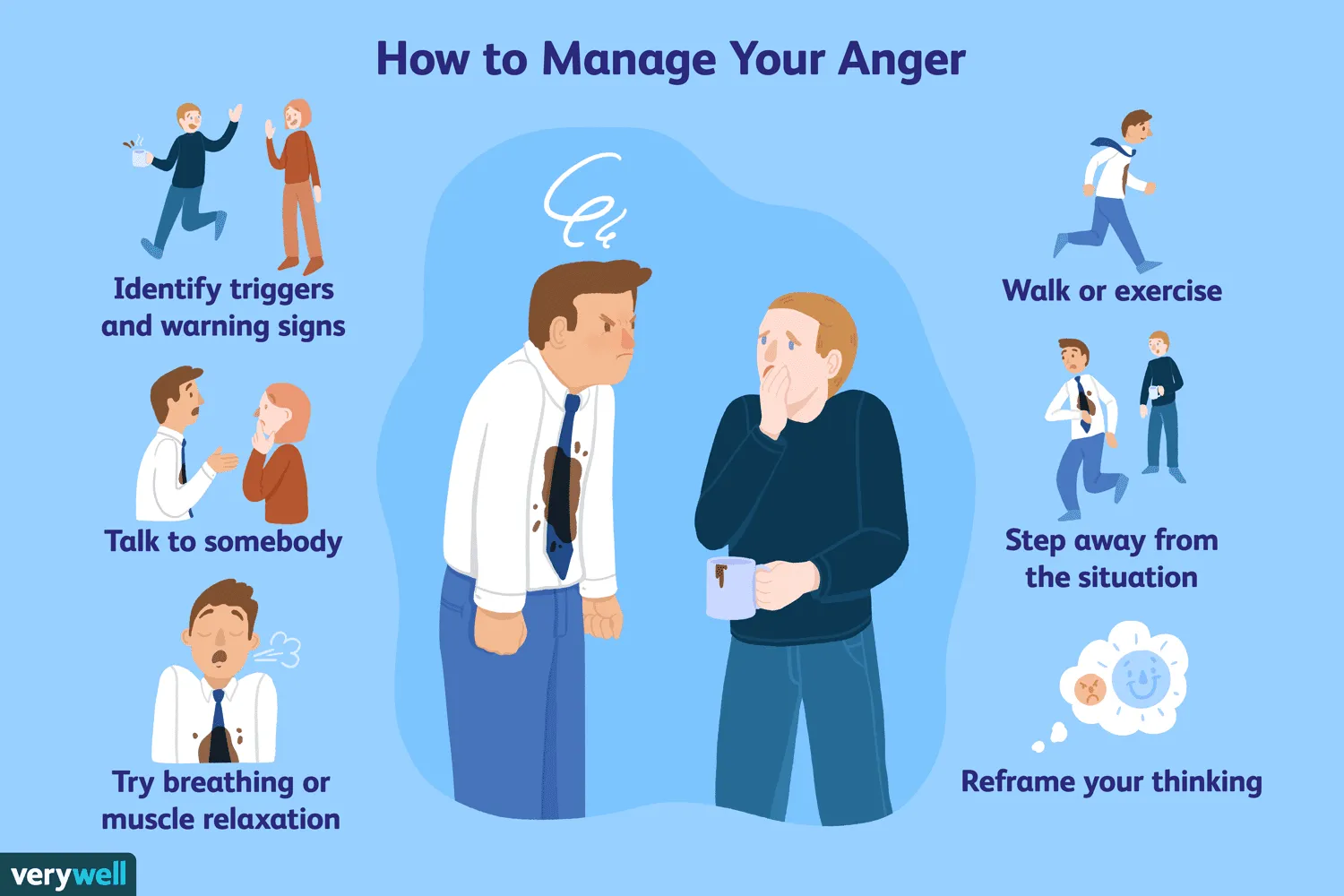Anger can make us act fast and feel bad afterward. Everyone gets angry at times, whether it’s over small things or big problems. The hard part is learning how to calm down. Today, we’ll talk about how anger can harm your health and give tips to help calm it down. Letting things happen naturally helps us deal with anger better. It’s good to give ourselves time to relax and calm down. Letting go of control can help us feel more at ease. It’s okay to let things be, rather than rushing to fix them. When we don’t try to control everything, we can handle anger in a healthier way. Taking things slow helps us stay calm and feel better.
1. Take a few deep breaths

Deep breathing is a simple way to calm anger. When you’re angry, your breathing gets short and quick. This lowers the oxygen in your body, making you feel more upset. To calm down, try taking a few slow, deep breaths. This helps slow your anger and makes you feel calmer. It’s important to notice how your body feels when you’re angry. You might feel tightness or tension in your muscles, which can make you more upset. By paying attention to these feelings, you can catch your anger early. Deep breathing helps relax your body and gives it the oxygen it needs. Focusing on your breath can take your mind off the anger. It’s a simple way to help reset your emotions. When you notice anger early, you can take action before it gets worse. Deep breathing helps you feel more in control and calm.
2. Know the reason

When you start to feel anger rising, that’s the perfect time to pause. I know it’s not easy because I’ve fallen into this trap many times. Instead of reacting right away, hold back that urge to lash out, like using harsh words or raising your voice. Calming your anger begins with understanding where it’s coming from. Ask yourself, “Why am I angry?” or “What caused this anger?” Identifying the reason behind your anger can help you understand it better. Listen to your inner thoughts, and you’ll find the true answer. It’s important to accept your feelings and understand them.
3. Control your ego self

Your ego wants to feel good and always be satisfied. When you’re angry, it makes you want to react, like saying hurtful things or getting back at someone. This happens because you’re used to it. Your body also gets used to losing control, but you can change that. Even if you’re angry with yourself, it’s important to be kind and take care of yourself. Showing yourself love helps control anger. Try to ignore your ego little by little. When you feel angry, step back and let those feelings go.
4. Pause before making a decision

When you’re angry, it’s not a good time to make decisions. Anger makes you act quickly without thinking, and you might regret it later. It stops you from thinking clearly. The best thing to do is move away from what’s making you angry and take some time to calm down. Give yourself a break to regain control of your emotions. Remember, you don’t need to prove anything to anyone. If someone’s words or actions make you angry, remind yourself that you don’t have to react right away. Take a deep breath, step back, and give yourself space. This will help you make better decisions and avoid regrets later.
5. Observe your triggers

To manage your anger, it’s important to be aware of what or who makes you feel uneasy. If you find that someone is the cause of your frustration, it might help to stay away from them. If distancing yourself doesn’t work, try talking to them about how you feel. Open communication can help clear things up. However, it’s also important to avoid situations that might trigger your anger. Staying away from triggers can give you more control over your emotions. Focus on what you can do to prevent getting upset in the first place.
6. Apologize if needed

If you find yourself reacting in a situation, just apologize. Stop thinking about whose fault it is. I used to feel uncomfortable saying sorry, but I’ve learned that it can bring peace inside you. Saying sorry or fixing the situation helps calm things down. It’s hard when your ego tells you not to let go, but it’s worth it. When you apologize first, you can make things better. It might feel tough, but it helps your mental peace. Letting go of the need to be right can reduce stress. Apologizing helps both you and the other person feel better. It’s a small thing, but it can make a big difference.
7. Practice mindfulness activities to cool down

When you feel angry, take deep breaths to calm down. Mindfulness can help you feel peaceful for longer. Sitting still might make you restless, so it’s good to move around. Simple exercises like yoga, walking, or stretching help both your body and mind feel better. They help you relax. Another way to calm down is to sit quietly for a few minutes and focus on your thoughts. This helps your mind rest. Doing things you enjoy, inside or outside, can also keep anger away. These activities help you stay calm and balanced. They help you control your feelings and feel better. By practicing these habits, it’s easier to handle anger and stay in a good mood.
8. Get help from trusted ones
Never hesitate to talk to someone you trust when you’re feeling upset. Opening up to that one person you confide in can bring you peace and support. If something is bothering you or someone has hurt you, don’t keep it inside. Speaking about it can ease the tension and help you feel better. When you share your feelings, you can often find relief and a new perspective. Talking allows you to let go of built-up frustration. These small actions can really make a difference in controlling your anger. It’s important to express your feelings rather than letting them build up. By opening up, you can understand your emotions better. These simple steps are key to calming yourself down. With time, you’ll learn to manage your anger more easily. Here are 8 tips to help you stay calm and in control.

[…] ingredients like organic peas, brown rice, mung beans, and chia seeds. These ingredients are carefully selected to provide a smooth and creamy flavor. Not only does this protein powder offer a balanced […]